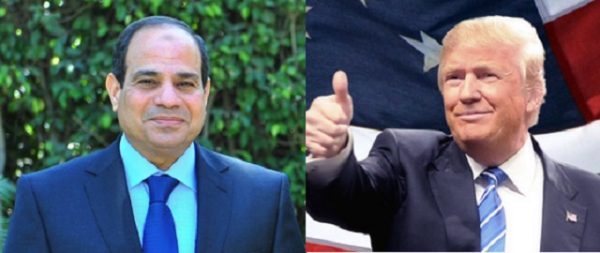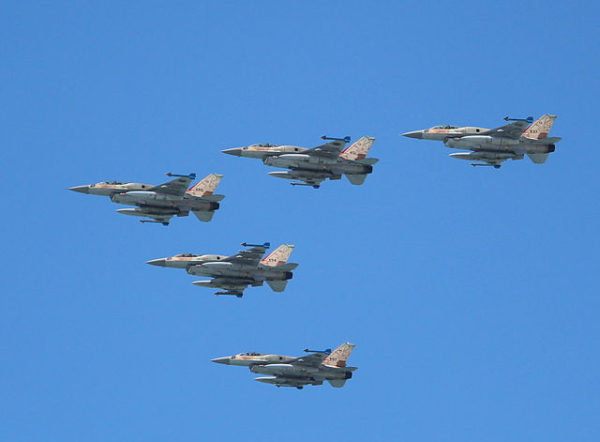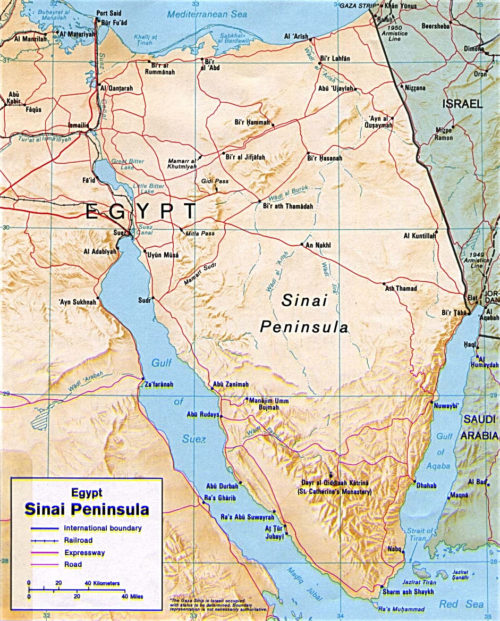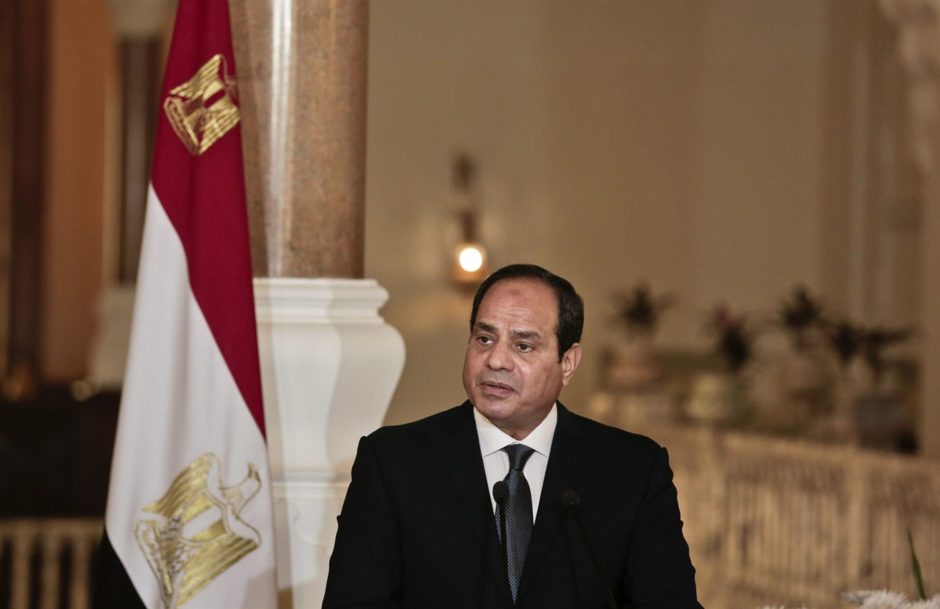As turbulent a country as ever, Egypt, in the last six years, has seen an uprising topple a dictator, the election of a Muslim Brotherhood leader to power, and finally a coup that brought a former general/ defence minister into office.
When Barack Obama came to Washington in 2009, he promised a “reboot” in relations with Cairo. But the 2011 Tahrir Square Arab Spring that ousted Hosni Mubarak, the election of the Brotherhood’s Mohamed Morsi in 2012, and then the repression that followed in 2013 under Abdel Fattah al-Sisi, cooled relations.
Obama temporarily suspended the delivery of major weapons systems to Egypt after its security forces killed more than 800 protesters in Cairo on a single day, August 14, 2013.
Since then, they have jailed tens of thousands and committed human rights abuses, including the torture and forced disappearances of critics and opponents. At least 41,000 people have been arrested, according to local human rights groups.

While Obama refused to invite al-Sisi to Washington because of concerns about human rights violations, Donald Trump, the new American president, has made it clear that, for him, the fight against Islamic terrorism and security cooperation will take precedence over human right concerns.
Last August, while running for the presidency, Trump hailed al-Sisi as someone who recognized that “this ideology of death that must be extinguished.” He also called him a “fantastic guy.”
Trump met with the Egyptian leader a month later, and al-Sisi was the first leader in the Arab world to congratulate Trump on his election victory last November.
His arrival at the White House on April 3 underscored the reversal of U.S. policy. As the two presidents faced reporters in the Oval Office, Trump was effusive in his praise of al-Sisi, pledging close cooperation with him on counterterrorism operations and commending his leadership. “I just want to let everybody know, in case there was any doubt, that we are very much behind President al-Sisi,” Trump remarked. “He’s done a fantastic job in a very difficult situation.”
In turn, al-Sisi vowed to support Trump’s effort to negotiate peace between Israelis and Palestinians, calling it an effort to “find a solution to the problem of the century in the deal of the century.”
“Trump would rather stand with a strongman against terrorism and Islamism than concern himself with Egypt’s domestic challenges,” said Daniel Benaim, a senior fellow with the Center for American Progress in Washington.

Meanwhile, Egypt has been battling Islamic State-affiliated terrorists in the Sinai Peninsula in recent months and is making this the basis for asking for increased military aid. Egypt wants to acquire larger items such as F-16 fighter jets and M1A1 tanks, though these would be of little use there.
“The counter-terrorism campaign in the Sinai and in Egypt proper has not achieved its objectives, due largely to harsh methods, poor intelligence and the drivers of discontent intensifying,” according to Robert Springborg, a visiting professor in war studies at Kings College London and an expert on Egypt’s military. “New military equipment will not impact these shortcomings.”

Cairo has also demanded that Western countries take a tougher stance against the Muslim Brotherhood, Egypt’s oldest and largest — and now outlawed — Islamist political party. It wants the United States to designate it as a terrorist organization, something already done by a number of Arab states as well as Russia (and Egypt’s relations with Moscow have warmed in recent months). That is something Trump may consider. The Brotherhood has been using surrogates in behind-the-scenes lobbying efforts in the U.S. to try to prevent this.
Al-Sisi is also meeting with representatives of the World Bank and International Monetary Fund while in Washington. Egypt has been negotiating billions of dollars in aid to help its ailing economy.
Last month, the government cut subsidies for bread, a move mandated by the IMF. As prices rose, bread riots hit a number of major cities. The country’s currency has also been in free fall.
There is anger at the Egyptian military establishment, which controls large chunks of the economy and has escaped relatively unscathed amid Egypt’s fiscal troubles.
In his talks with World Bank President Jim Yong Kim, al-Sisi expressed his appreciation for its efforts in supporting Egypt’s implementation of development projects and its technical assistance to the private sector.
The bottom line is that al-Sisi got what he wanted simply by appearing with Trump, according to Eric Trager, a scholar on Egypt at the Washington Institute for Near East Policy. The White House has legitimated his regime and set U.S.-Egyptian relations “on a new course.”
The liberal foreign policy establishment isn’t happy with this turn of events. An official visit to Washington by Egypt’s leader “as tens of thousands of Egyptians rot in jail, and when torture is again the order of the day is a strange way to build a stable strategic relationship,” Sarah Margon, the Washington director of Human Rights Watch, declared in a statement on the eve of the visit.
Henry Srebrnik is a professor of political science at the University of Prince Edward Island.

